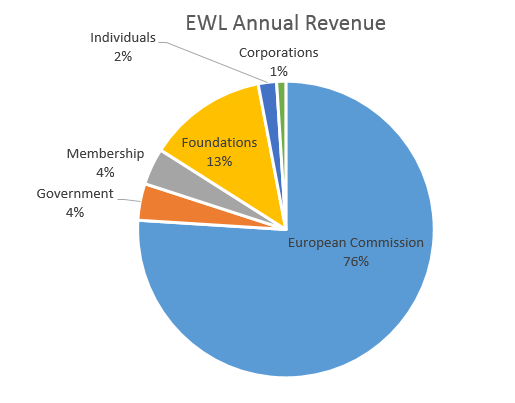[Maplecroft, 17 November 2011] New research into the extent of protection of women and girls has revealed that the risk of human rights abuses, such as sexual violence, discrimination, trafficking and sexual exploitation, are at ‘extreme’ levels in just over 40% of the 197 countries studied.
The results of the Women’s and Girls’ Right Index (WGRI), released by risk analysis and mapping company Maplecroft, reveal that the rights of women and girls are at ‘extreme risk’ within 80 countries, including 33 from sub-Saharan Africa, nearly all of the Middle East and North Africa region and many emerging economies.
The WGRI is one of 23 indices to feature in Maplecroft’s fifth annual Human Rights Risk Atlas, which will be released on International Human Rights Day on December 10th, 2011. The Atlas has been developed by Maplecroft as a tool for multinational companies to monitor potential risks of complicity in human rights abuses throughout operations and supply chains.
According to the index, the 10 countries posing most risk to the rights of women are Iran, Sudan, Somalia, Syria, DR Congo, Saudi Arabia, Afghanistan, Burundi, Haiti and Nigeria.
At the opposite end of the scale, only 5% of countries rank in the low risk category, including: Denmark (188th), Belgium (joint 190th), Sweden (joint 190th), Canada (192nd) and New Zealand (193rd). However, even in these countries, some issues persisted, including honour-related crimes and forced marriage.
The index also shows minor improvements for the protection of women and girls globally. Fewer countries, 144 compared to 156 last year, ranked in the ‘extreme’ and ‘high risk’ categories, representing an 8% annual decrease. However, according to Maplecroft this only reflects a minor improvement and widespread violence and discrimination continues to be a major issue throughout the emerging and developing economies.
Complicity with the abuse of women’s and girls’ rights in fast-growing emerging economies pose particular risks to global companies, as this is where they must do business in order to flourish. These include: Nigeria (10th), Bangladesh (12th), Pakistan (20th), Philippines (24th), China (29th), Egypt (48th), Mexico (51st), Russia (65th), Indonesia (73rd), India (75th) and Turkey (79th), all of which are rated ‘extreme risk’ in the WGRI. Risks of complicity in violations committed by state security forces or other actors in these countries include sexual violence, discrimination in employment, child labour, trafficking and sexual exploitation.
Women’s and Girls’ Rights Index
Legend
Extreme risk
High risk
Medium risk
Low risk
No Data
Rank Country Rating
1 Iran Extreme
1 Somalia Extreme
1 Sudan Extreme
1 Syria Extreme
5 DR Congo Extreme
Rank Country Rating
5 Saudi Arabia Extreme
7 Afghanistan Extreme
7 Burundi Extreme
9 Haiti Extreme
10 Nigeria Extreme
© Maplecroft, 2011
One of the main findings of the WGRI relates to the conduct of state and private security forces that are utilised by companies in the protection of high value assets, such as oil drilling operations, mines or plantations.
Maplecroft notes evidence of widespread patterns of rape by security forces in countries with weak governance structures, including the resource-rich countries of DR Congo (5th), Côte d’Ivoire (22nd), Sierra Leone (31st) and Myanmar (61st). All rated ‘extreme risk’ for the fifth year running in the WGRI and pose particular risks of complicity to business. A recent case was uncovered by a UN Investigation Mission that found soldiers of the Armed Forces of the DR Congo (FARDC) had perpetrated sexual violence, including rape, against 47 women, including one minor in Bushani and Kalambahiro in Masisi Territory, North Kivu in January and February 2011.
Precise figures for sexual violence in these countries are difficult to obtain and vary widely, due to poor reporting environments. However, in May 2011, the American Journal of Public Health estimated that 1,152 women and girls are raped every day in DR Congo, whilst the UN Population Fund reported that 200,000 women and girls have been raped in the country over the past five years.
Adolescent girls are most vulnerable to violations, including female genital mutilation (FGM). According to 2011 data available from the Girls Discovered website, a web-based repository of data on girls, developed in partnership between Maplecroft, Nike Foundation and United Nations Foundation, many countries in Sub-Saharan Africa present high levels of gender violence including FGM. In some countries, such as Sierra Leone, Somalia and Guinea, FGM can affect as many as 80-90% of girls.
“Achieving gender equality is a basic human right and a crucial part of development,” states Maplecroft Analyst, Siobhan Tuohy-Smith. “Responsible businesses can play an important part by identifying and mitigating these risks in their supply chains through the monitoring of human rights and instigation of due diligence processes. They can also actively work with civil society, international organisations and governments to support the delivery of projects advancing and protecting women’s and girl’s human rights.”
For more information contact info@maplecroft.com or call +44 (0)1225 420000.


